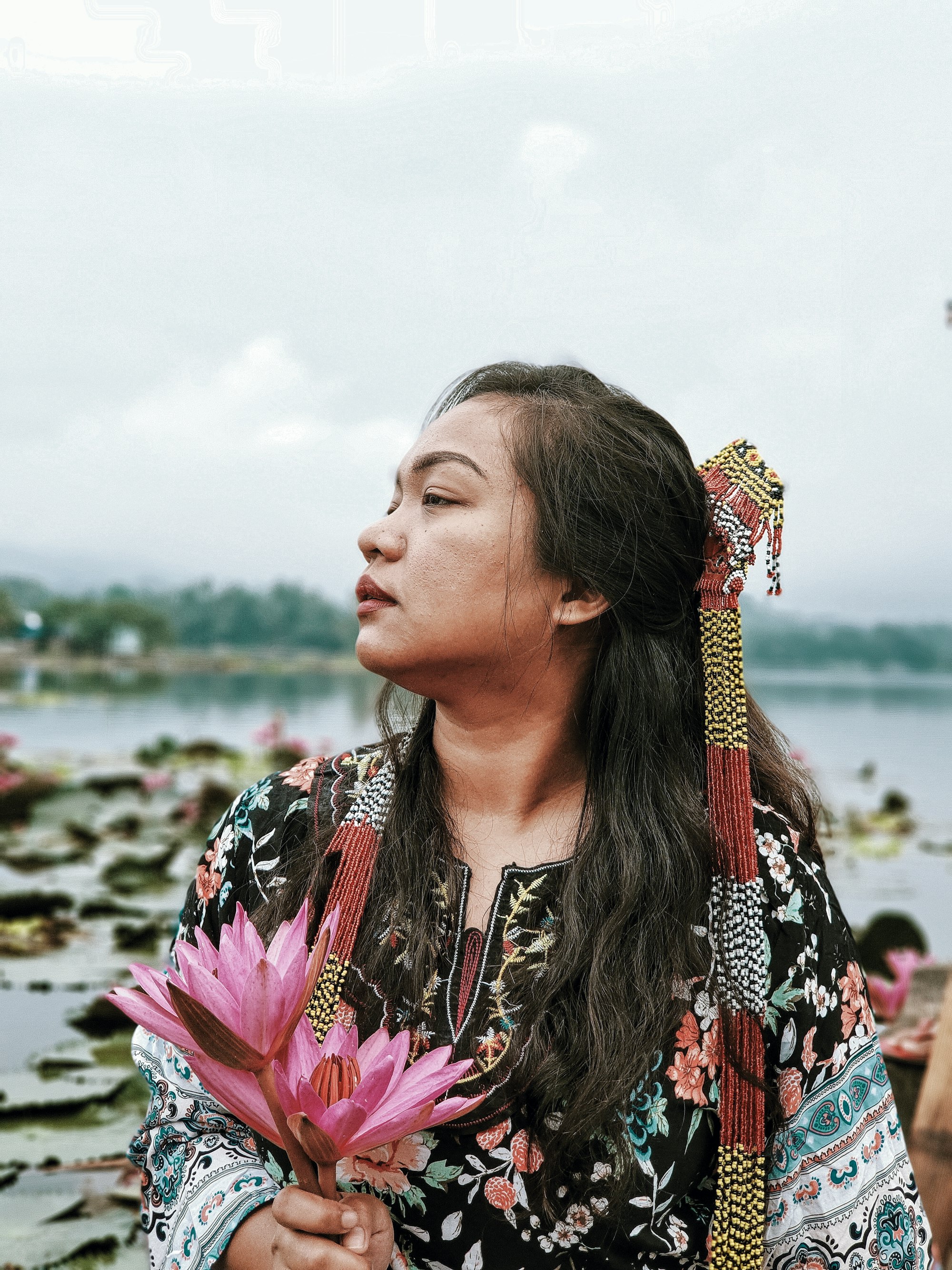Joy Harjo, "Granddaughters"
Harjo means in her lyric to build a grandmother/granddaughter whose experiences are inextricable from myth.

To continue a topic from the last post: I want to forge resolutions which create good things for others, too.
A few weeks ago, I discussed Joy Harjo's "Granddaughters" in two separate meetings, one with the college's Sigma Kappa Delta chapter and the other with a group of us who talk philosophy. I was particularly interested in how Harjo gives her granddaughters a gift through her poem. How is such a thing possible? On the one hand, people give each other beautifully crafted words all the time. It's a regular, everyday occurrence that shouldn't occasion wonder. On the other, I have no idea how anything I say impacts anyone. I feel like people are exceedingly generous with me and that's the only reason my scatterbrained thoughts land on welcoming ground.
Harjo means in her lyric to build a grandmother/granddaughter whose experiences are inextricable from myth. She speaks in tones belonging to the First Nations as well as the Western canon. I'm grateful to Crystal Sosa, Mallory Sanchez, Dan Abella, Josh Cook, and a number of other students, staff, and faculty for their insights. They helped me better understand the poem as a fantastic cluster a granddaughter can pick up any part of and enter. There are many points of access, held together by an unbreakable, resilient thread.
Granddaughters (from Poetry) Joy Harjo I was a thought, a dream, a fish, a wing And then a human being When I emerged from my mother's river On my father's boat of potent fever I carried a sack of dreams from a starlit dwelling To be opened when I begin bleeding There's a red dress, deerskin moccasins The taste of berries made of promises While the memories shift in their skins At every moon, to do their ripening
Harjo begins with a recapitulation of her birth: "I was a thought, a dream, a fish, a wing / And then a human being." Before she walked, she cut through rivers. She flew. She may have briefly experienced completeness at inception, being "a thought, a dream" from Plato's realm prior to birth which we must recollect for the sake of the truth. Some say that things can only be created by things greater than them. I am in awe of how Harjo navigates items which sound cosmically significant to settle on "human being," itself a culmination. Thoughts, dreams, fish, and wings invoke magic, but ultimately they are parts.
A human being is whole, but divided. I can't help but think that Harjo's first 5 lines constitute a sly response to Wordsworth's "The Child is father of the Man; / And I could wish my days to be / Bound each to each by natural piety." Those lines of Wordsworth have an almost privileged tone by comparison. A grandmother/granddaughter is whole but forced to work with a "mother's river" and a "father's boat of potent fever." No amount of "natural piety" might overcome the viciousness of a family member's "potent fever." One could stay true to the boat, never leaving it, and die upon it.
That's the challenge: you are an amazing human being, a literal grand daughter, and the cruelty of the world is such that your own family can see you as fit for nothing but abuse. How to survive? How to fully realize the magic that you are? Some will say to never be angry and always forgive, but that's not serious advice, just moral posturing. People don't have to be hateful to be hurtful; they only need to be ignorant. But to deal with hate–I mean, I've seen parents who abuse kids for their virtues–that requires an understanding from another world.
Hence, "I carried a sack of dreams from a starlit dwelling." I feel like this is the one, true gift. We've got so many people putting others down over the pettiest nonsense. I'm watching people call others failures because they don't follow instructions that were made up in 30 seconds to the letter. There are many who said they did some terrible act to survive and that anyone unwilling to validate their depravity is a loser. But what if someone tied their survival to wanting to thrive? What if they said they are truly from somewhere "starlit," a place all of us could be from?
To elevate yourself, to find your true position, you must believe your body, your feelings, your memories, your growth:
I carried a sack of dreams from a starlit dwelling
To be opened when I begin bleeding
There's a red dress, deerskin moccasins
The taste of berries made of promises
While the memories shift in their skins
At every moon, to do their ripening
The artistry in these lines cannot be commended enough. Initially, it looks like a random list: "bleeding," "red dress," "deerskin moccasins," "berries," "promises," "memories," "skins," "ripening." However, there's nothing random about how the senses of touch and taste accompany the transition from child to adult. You're bleeding because you're hurting and developing; a red dress and deerskin moccasins speak to developing in two different cultures. Sexuality, change, dignity, and culture are issues which define you while pulling you in a number of directions. "The taste of berries made of promises" ironically resolves one issue. You're on your own, with only the promises you made to yourself standing.
This opens into the ending. "...[T]he memories shift in their skins / At every moon, to do their ripening." You have to trust, as your body changes and you see/are seen differently, that the depth of your memory will ripen. That there's a greater maturity within you, one not unlike the ancestors who survived and preserved and modified the tradition. The ones who eventually believed they could bear fruit for generations. Who believed they could give.
